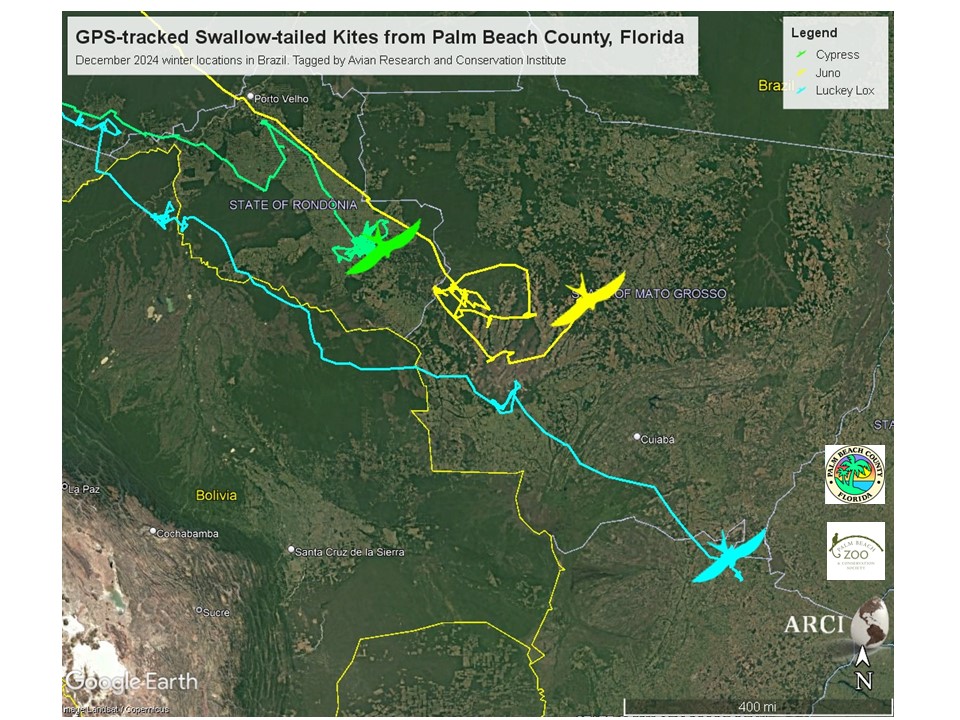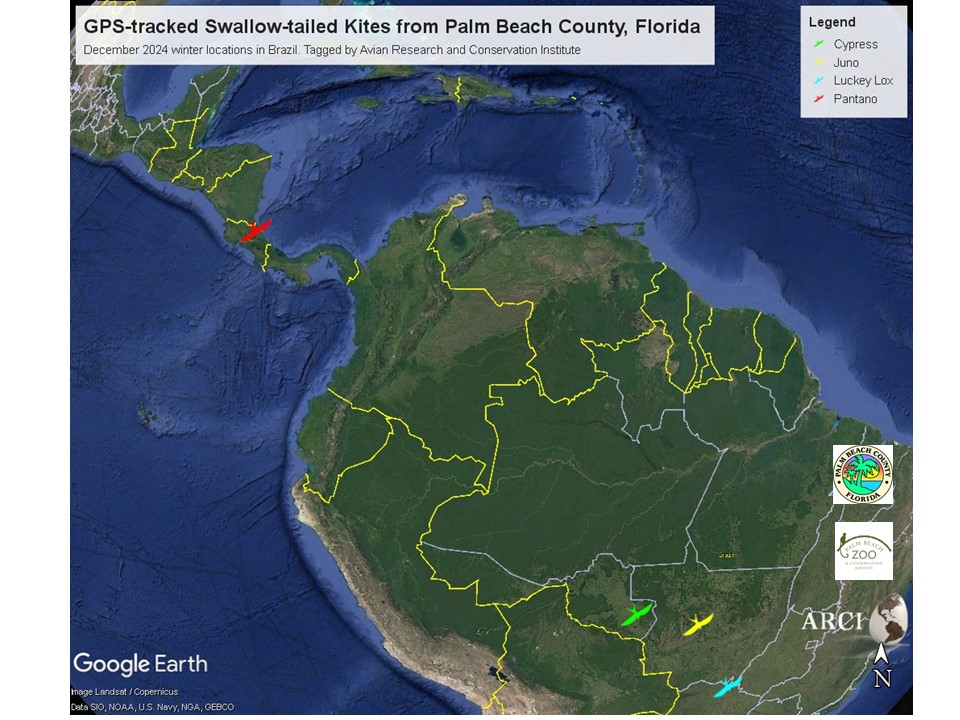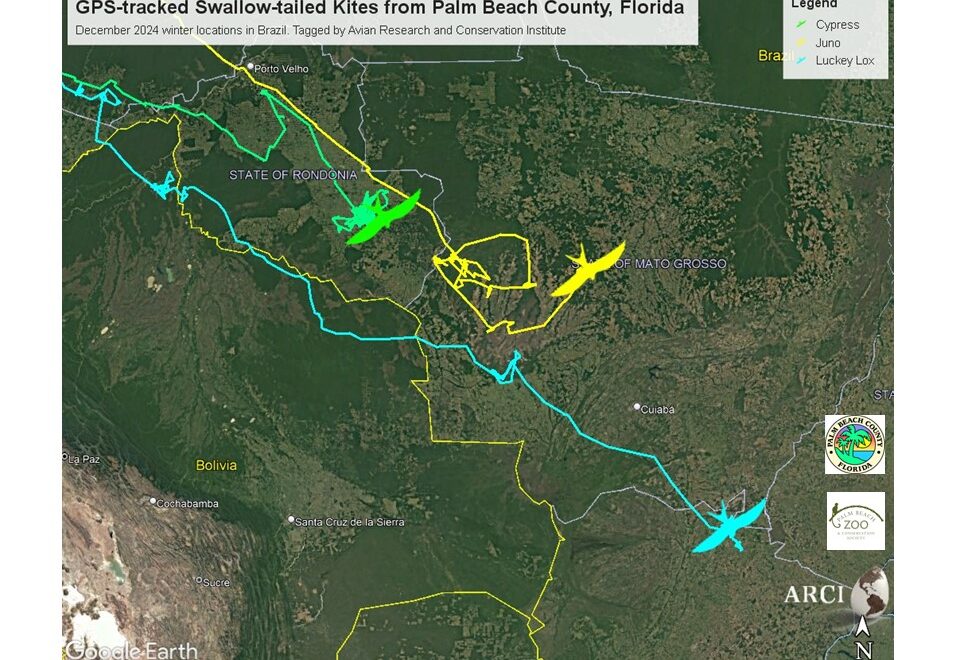Our December report follows the four Swallow-tailed Kite we are tracking in partnership with the Palm Beach Zoo & Conservation Society and Palm Beach County’s Department of Environmental Resources Management (ERM).
Three of the Palm Beach County Kites have settled into wintering areas in three different southwest Brazilian states spanning 670 miles apart. During the breeding season, their nesting areas are only 6-10 miles apart.

Luckey Lox, a female, is the farthest south in Mato Grosso do Sul, Brazil. She arrived on November 1st.
Cypress, a male, arrived at his wintering site in the State of Rondônia, Brazil on October 3rd.
By mid-September, Juno, a female, arrived at her wintering destination in the western part of the State of Mato Grosso, Brazil. She joined another three GPS-tracked Swallow-tailed Kites from Lee County, Florida; Georgetown, South Carolina; and another tagged by Orleans Audubon Society in Assumption Parish, Louisiana. Together, they are weaving between forests and agriculture in a 70-mile diameter circle near Capanema, Mato Grosso. They’ve shared roosts and foraging locations in this tiny locus of South America, all coming from distant breeding locations in south Florida, coastal South Carolina, and southern Louisiana. Just think of how many other Swallow-tailed Kites might be with them!
Pantano, a female from Palm Beach County, Florida has not reported since she was in Costa Rica in August. During lengthy stretches over mountains, oceans, and vast wilderness, kites are far from a cellular connection and cannot upload their location data. We hope this is the case with Pantano and that once she reaches a place with cell coverage, she can connect and upload all the stored location data.

ARCI tracks Swallow-tailed Kites not only to monitor the roosts, foraging areas, stopover sites, and winter destinations, but also to see how they use public and private lands and survive throughout the Southeastern States. We are grateful for our funders and project partners for making this research possible.
Palm Beach Zoo & Conservation Society, in conjunction with long-time Zoo sponsor Florida Power & Light Company, have generously provided funding for the solar-powered GSM-GPS transmitters needed to continue this vital conservation effort.


Leave a Reply